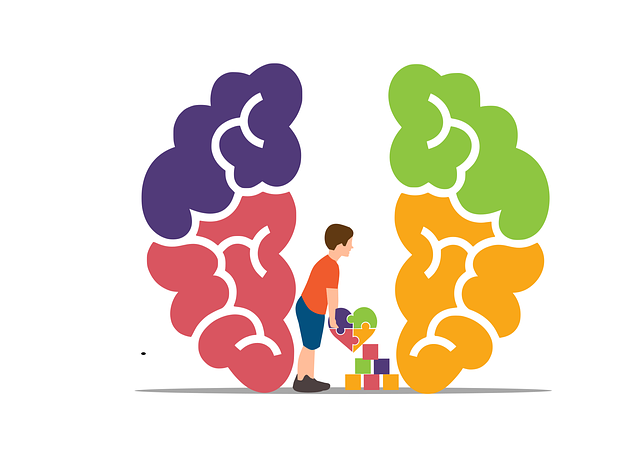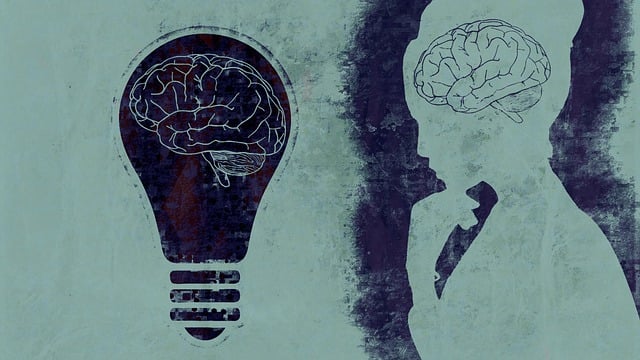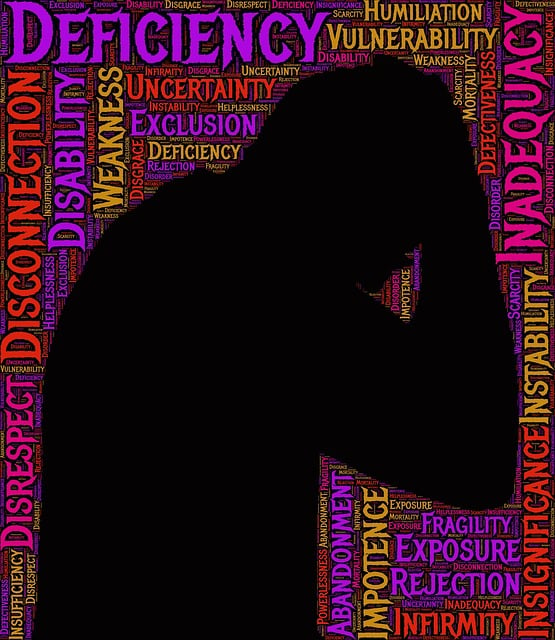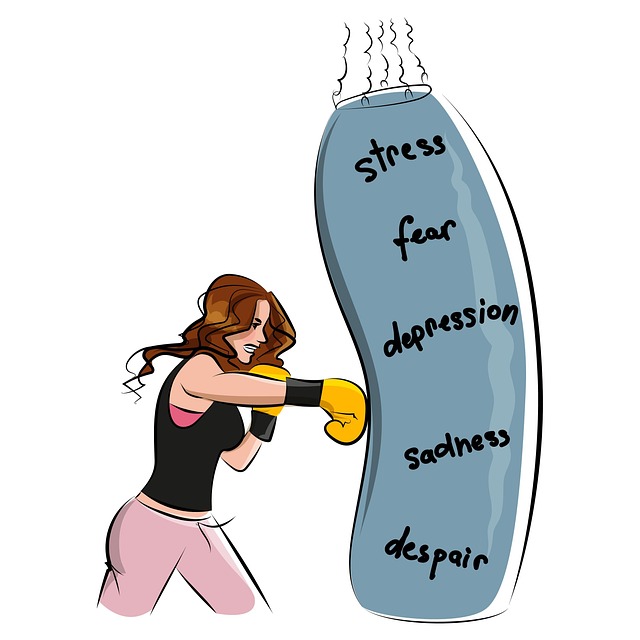Media portrayals of mental illness significantly shape public perceptions, often perpetuating stereotypes that can discourage individuals from seeking support, particularly in diverse communities like Arvada's Hebrew-speaking population. Positive media representations and culturally sensitive therapy services, such as those offered by Arvada Hebrew Speaking Therapy (AHST), are crucial for overcoming stigma and promoting understanding. AHST advocates for inclusive healthcare solutions, policy analysis, and training to ensure empathetic care for diverse patients. By challenging stereotypes through diverse storytelling and collaboration between media and therapists, we can create an environment where individuals feel empowered to access the therapy they need, fostering recovery and resilience.
In today’s media landscape, the representation of mental illness holds significant power in shaping public perception. This article explores the impact of media portrayals on mental health, delving into the challenges and offering solutions. We examine the work of Arvada Hebrew Speaking Therapy, a pioneering initiative addressing stigma through accurate representation. By identifying harmful stereotypes, we advocate for positive change in media and therapy practices. Real-world examples highlight successful campaigns, demonstrating the potential to foster understanding and reduce stigma, ultimately benefiting those seeking support.
- Understanding the Impact of Media Portrayals on Mental Health Perception
- The Current State: How Arvada Hebrew Speaking Therapy Addresses Stigma
- Identifying Stereotypes and Their Effects on the Targeted Communities
- Strategies for Positive Change: A Call to Action for Media and Therapists
- Real-World Examples: Successful Campaigns and Their Outcomes
Understanding the Impact of Media Portrayals on Mental Health Perception

Media portrayals of mental illness can significantly shape public perceptions and understanding of various psychological conditions. Often, these representations in movies, television shows, and news coverage reflect societal attitudes and beliefs, which may not always be accurate or constructive. For instance, stereotyping individuals with mental health struggles as violent or dangerous contributes to the stigmatization of these individuals, fostering an environment of fear rather than empathy. This can deter people from seeking much-needed support and treatment, especially in communities like Arvada’s diverse Hebrew-speaking population, where access to culturally sensitive therapy is essential.
The impact of media portrayal goes beyond entertainment; it influences policy and community responses. Positive representations that showcase recovery and resilience can foster a more supportive mental health environment. Encouraging emotional intelligence through these narratives may reduce the internalized stigma experienced by many. Moreover, advocacy groups and mental health policy analysis can be empowered to challenge negative stereotypes, ensuring that media reflects the complexity of mental illness and promotes understanding rather than fear.
The Current State: How Arvada Hebrew Speaking Therapy Addresses Stigma

Arvada Hebrew Speaking Therapy is at the forefront of challenging mental health stigma within the community by providing specialized services tailored to the unique needs of speakers of Hebrew. In an era where cultural sensitivity and understanding are paramount, this therapy center recognizes the significance of addressing mental illness through a lens of diversity and inclusion. They offer a safe space for individuals struggling with various mental health challenges, ensuring that cultural barriers no longer act as obstacles to seeking support.
By prioritizing Resilience Building within their approach, Arvada Hebrew Speaking Therapy equips clients with the tools needed to navigate life’s hurdles. Their dedicated professionals facilitate open conversations about mental well-being, fostering an environment where individuals can share their experiences without fear of judgment. Furthermore, the therapy center advocates for Mental Health Policy Analysis and Advocacy, pushing for more inclusive healthcare solutions. They also organize Healthcare Provider Cultural Competency Training, empowering medical professionals to offer empathetic care to a diverse range of patients.
Identifying Stereotypes and Their Effects on the Targeted Communities

Stereotypes surrounding mental illness have profound effects on targeted communities, often perpetuating stigma and hindering access to care. In media, these stereotypes commonly manifest as one-dimensional portrayals, reducing complex conditions to simplistic narratives that can be detrimental. For instance, depicting characters with mental illnesses solely as dangerous or helpless reinforces fear and misunderstanding within the general public. Such representations may also contribute to self-stigma among individuals struggling with their mental health, causing them to internalize negative perceptions and delay or avoid seeking help.
This is particularly relevant for minority communities, including those with Hebrew-speaking backgrounds in Arvada, as cultural sensitivity in mental healthcare practice becomes paramount. Stereotypes can exacerbate existing barriers to care, leading to under-representation of these groups in mental health services. A comprehensive approach to challenging these stereotypes requires a blend of accurate representation in media and education initiatives that promote understanding and destigmatization. This, coupled with risk assessment for mental health professionals and effective stress reduction methods tailored to diverse populations, can foster an inclusive environment where individuals feel empowered to seek and receive the support they need.
Strategies for Positive Change: A Call to Action for Media and Therapists

Media and therapists play a pivotal role in shaping societal perceptions about mental illness. To foster positive change, both sectors must collaborate to challenge stereotypes and promote accurate representation. One effective strategy is to highlight diverse narratives, ensuring voices from various ethnic backgrounds, including those of Arvada Hebrew Speaking Therapy, are included. By showcasing individuals with mental health challenges as multi-dimensional characters with unique stories, media can contribute to a more empathetic understanding among the public.
Additionally, therapists can actively engage in media initiatives, offering expert insights and guidance on accurate portrayal. This collaboration should extend to creating accessible resources and promoting open conversations about mental wellness. Encouraging self-care practices and providing Burnout Prevention Strategies for Healthcare Providers can further enhance emotional resilience. Ultimately, these collective efforts aim to destigmatize mental illness while emphasizing the importance of Emotional Regulation and Stress Management in maintaining overall well-being.
Real-World Examples: Successful Campaigns and Their Outcomes

In recent years, several impactful campaigns have successfully challenged the way mental illness is portrayed in media. One standout example is Arvada Hebrew Speaking Therapy’s initiative that focuses on destigmatizing anxiety through a series of public service announcements and educational workshops. This campaign has been instrumental in fostering open conversations about anxiety, offering practical strategies for coping, and encouraging individuals to seek professional help without fear of judgment. The outcome has been a notable increase in community engagement and a more nuanced understanding of anxiety disorders among diverse populations.
Another successful effort is the implementation of risk management planning for mental health professionals, which includes comprehensive risk assessment for mental health professionals as a core component. These programs prioritize not only the well-being of therapists but also enhance their ability to provide effective support to clients struggling with various mental health issues. By integrating strategies for Anxiety Relief and refining risk assessment practices, these campaigns have paved the way for more empathetic and evidence-based mental health care.
Mental illness representation in media significantly influences public perception, making efforts like those of Arvada Hebrew Speaking Therapy crucial. By challenging stereotypes and promoting accurate, empathetic portrayals, we can foster understanding and reduce stigma. Therapists, media creators, and communities must collaborate to ensure diverse voices are heard, leading to more inclusive narratives that empower those affected by mental health issues. This collective action is essential in creating a more supportive society where everyone receives the care they need without fear of judgment.














